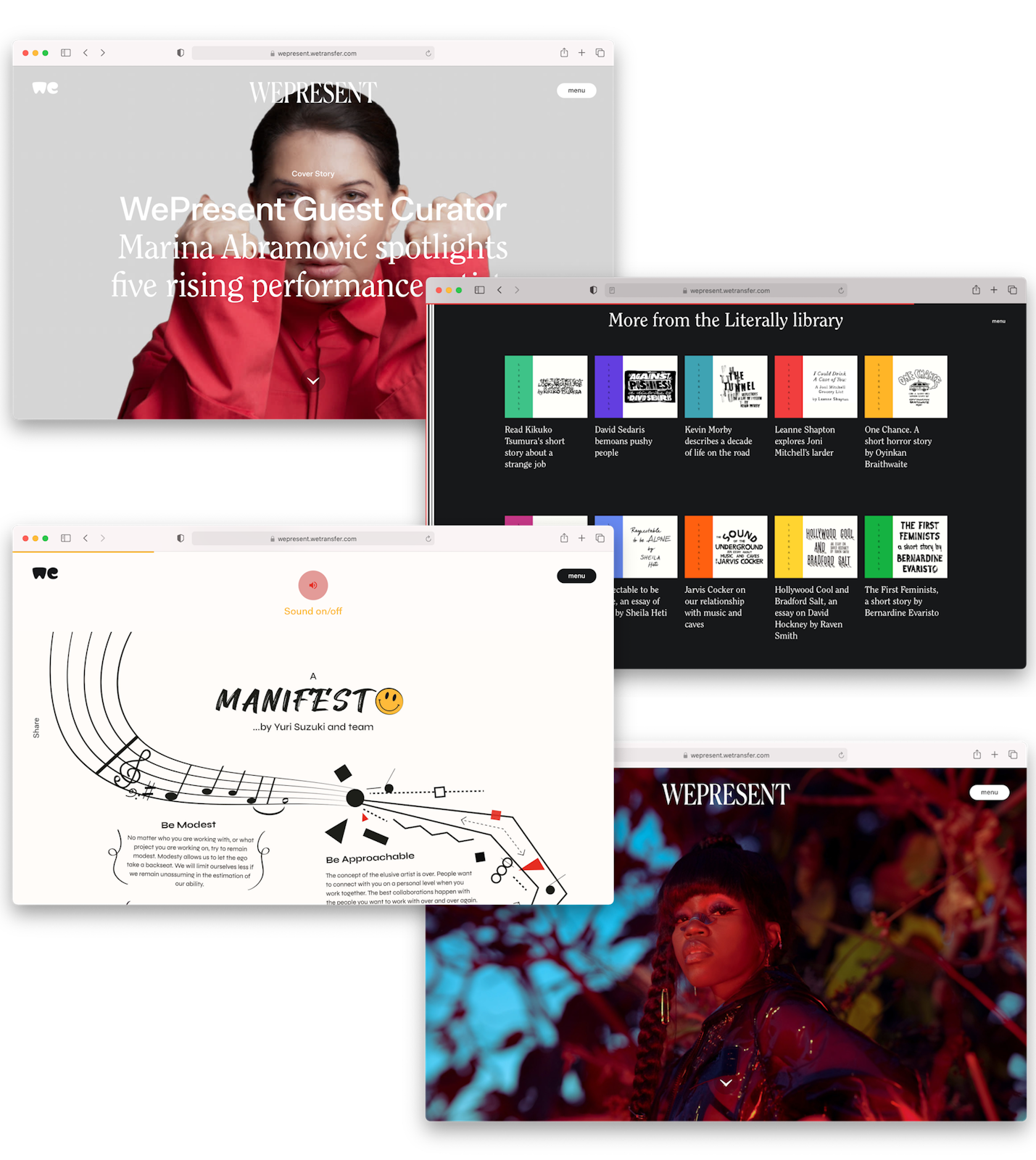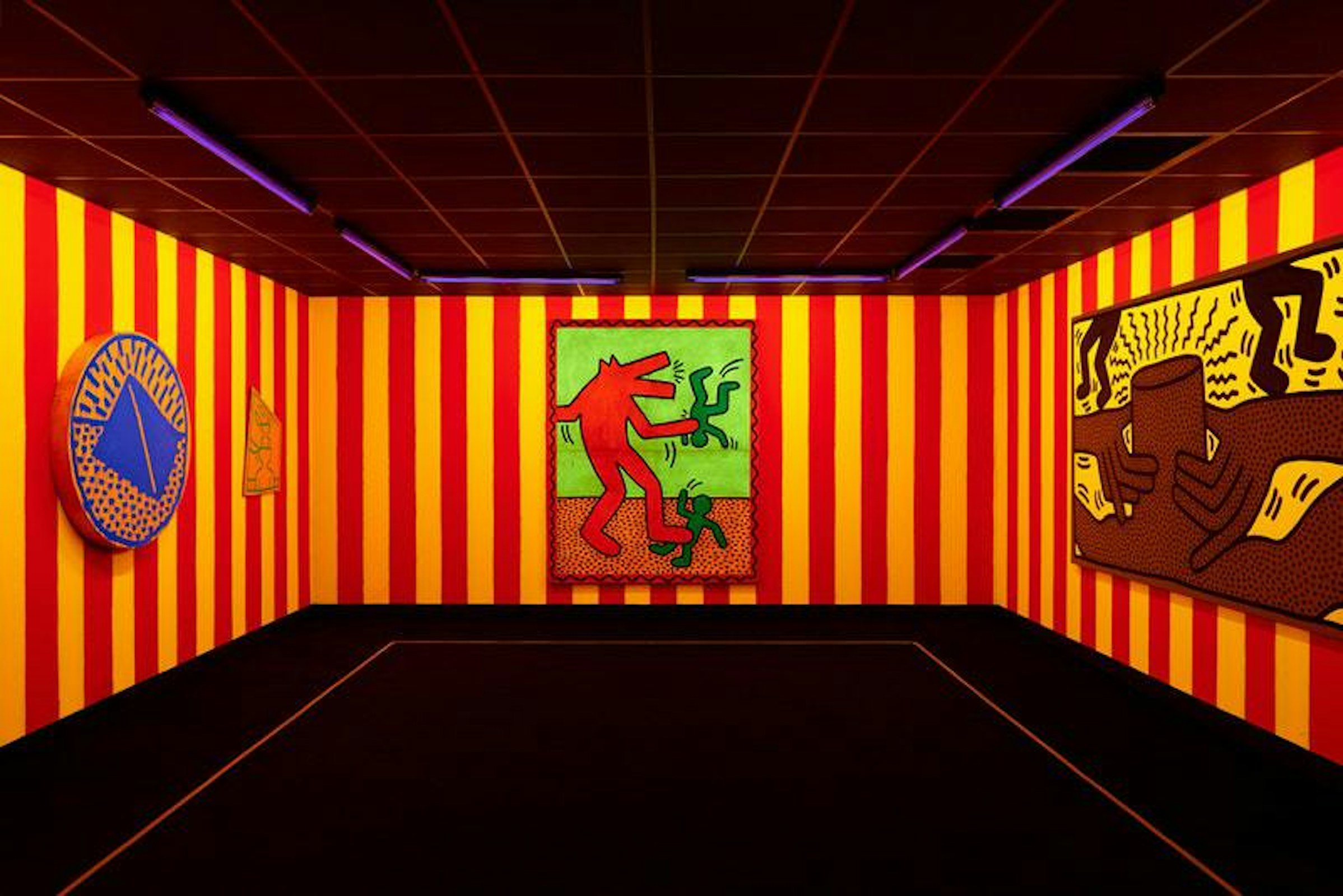Gallery Girl founder and art writer Lizzy Vartanian Collier on covering art from the Middle East
Lizzy Vartanian Collier has many titles: a writer, editor, podcaster and founder of Gallery Girl – a blog she launched at the ripe age of 18. With a focus on contemporary art from West Asia and North Africa, at the time, Lizzy didn’t expect the endeavour to end up becoming her full-time job. A few years down the line – plus an art history degree and a diploma in law later – Lizzy has since written for the likes of Artsy, Dazed, The Guardian, Harper’s Bazaar Arabia and Vogue Arabia to name a few. From curating shows in the UK, Jordan, Armenia and Yemen, giving talks and writing exhibition texts for galleries, here, Lizzy looks back at her journey so far; discusses the transition from art writing to law; and taking the plunge into full-time work with Gallery Girl.

Lizzy Vartanian Collier
Job Title
Art Writer, Curator, Editor, Podcaster
Based
London
Selected Clients
Armenia Art Fair, Artmejo, Artsy, Canvas Magazine, Dazed, The Guardian, Harper’s Bazaar Arabia, Hyperallergic, Suitcase Magazine, The Art Gorgeous, Tribe Magazine, Vice Arabia, Vogue Arabia among others
Previous Employment
Besides running Gallery Girl, Lizzy has held editorial roles at I.B.Tauris Publishers and worked for Armenia Art Fair. Her very first job was at Express Newspapers in the digital picture library when she was 16.
Place of Study
Graduate Diploma in Law, BPP University Law School (2020-2021)
MA Contemporary Art Theory, SOAS, University of London (2014-2015)
BA Art History, Oxford Brookes University (2011-2014)
Website
Social Media
What I do
How would you describe what you do?
I am predominantly an art writer. I have two specialities: the intersection of art and pop culture and contemporary art from West Asia and North Africa. I mainly work with digital publications so I have always been based at home, although prior to the pandemic I spent a lot of time in galleries and museums. In addition, I have a podcast and I have also curated projects in the UK, Jordan, Armenia and Yemen.
Can you tell us more about GalleryGirl?
Gallery Girl started out as a blog when I was 18 and just about to embark on an art history degree. It was a way to document all the exhibitions that I was seeing. I never had any grand ambitions for it and I didn’t really share it with anyone, either. Gradually, I started to get more readers.
It all really started when I was about to graduate and I wrote a piece about why you should study history of art, and what you can do with it. A major Italian publication called Finestre sull’Arte came across it and translated it and I started to get a lot of hits. From then I was asked to write for other publications and I also started pitching myself. Over time, I built up more contacts and I was writing regularly for others; I was also given the opportunity to curate exhibitions, give talks and write exhibition texts for galleries.
“The pandemic really made me re-analyse my priorities; I thought it was the perfect opportunity to go back to university.”
Throughout most of this time, I was working at a full-time job in publishing too. But in 2019 I took the plunge and made Gallery Girl my full-time occupation. It’s been interesting, but a good experience. It also meant that – prior to the pandemic – I had the opportunity to travel all over the world on press trips, which was pretty cool.
Over the last few years, the blog has tended to focus on contemporary art from West Asia and North Africa. I have roots here so it’s been kind of natural. I also started a podcast during the pandemic along this theme. As for the future, we’ll see what happens...
If you could sum up your job in an emoji, what would it be and why?
🤪
At the moment I would use this one (above). Working in the art world is pretty mad; it's full of egos and chaos and a lot of the time I am working on a stupid amount of projects at once. That said, you also get to work with great people and learn about new talent everyday. It’s crazy, but I love it.
What’s the weirdest thing on your desk right now?
Toe pads (what ballerinas wear inside of their pointe shoes). I’ve been wearing pointe shoes a lot during lockdown. Dance – and ballet in particular – has always been something that keeps me grounded when things are tough.
What’s been your favourite thing to work on, this past year, and why?
I worked on an article for Artsy recently, which was a pretty big deal for me; I never thought a big platform like that would ever reach out to me for my reputation with covering art from the Middle East. It was super-exciting and, to make it that much sweeter, the team were really nice to work with.
You recently enrolled in law school – what inspired your return to study?
I have always been interested in the law. I actually first got a place in law school after my MA, but after four years of studying I was keen to start working. The pandemic really made me re-analyse my priorities and I thought it was the perfect opportunity to go back to university. I am very interested in where art and law intersect, so we’ll see what the future holds.


How I got here
What was your journey like when you were first starting out? Did you find your feet quickly?
It was never my goal to make Gallery Girl my job, so in terms of art journalism, I can’t really answer this directly. I will say, though, that I found the whole process of job hunting after graduating very difficult. I know this is common for many people in the creative industries, so I want to be upfront about it.
It took me six months to secure my editorial job, and I was temping and writing hundreds of applications in the run-up to that. I would just like to tell anyone going through that process that it does get better and you will find your feet eventually, I promise.


How important would you say social media and self-promotion are to your work?
As I have gotten older, my approach and relationship to social media has changed. Now that I have a solid readership, I do not worry about it as much as I used to, and I actually limit myself to 30 minutes per day.
That said, social media is a huge tool and I really recommend making the most of it. I started out blogging, but I think Instagram has kind of replaced that. Networking on social media is super-easy, so I wouldn’t be afraid to reach out to people you are a fan of, or you’d like to speak to. I also think that sharing your work on Instagram and Twitter is never a bad thing. You never know who might come across your work.
“It took me six months to secure my editorial job, and I was temping and writing hundreds of applications in the run-up to that.”
What have been your greatest learnings with making money and supporting yourself as a creative?
Keep records of everything and don’t be afraid to ask for what you think you deserve. If you don’t ask, you don’t get.
If you could pick three things that you’ve found useful or inspiring to your work or career, what would they be and why?
I loved reading Canvas Magazine as a teenager, an amazing art publication based in the UAE. I am also continually inspired by Middle East Archive, which is run by Darah Ghanem, and the third thing I’ve found inspiring are my peers and friends doing amazing things in this crazy art world, particularly Sueraya Shaheen, photo editor of Tribe Magazine; Ibi Ibrahim, founder of Romooz Foundation; Sara Safwan, founder of Banat Collective; Cynthia Jreige, founder of Jdeed Magazine; Hind Joucka and Sama Shahrouri of Artmejo and too many others to mention! I think having a supportive network is something that’s really kept me going when times have been tough.

My advice
What’s the best career-related advice you’ve ever received?
This isn’t necessarily career-related, but it’s useful; my dad once told me not to give my heart to people, make them earn it. When I was starting out, I was really eager to get my name out there and I let people take advantage of me. Now I only work with people who treat me with respect.
What advice would you give someone looking to get into a similar role?
I would tell people to always be friendly. I sometimes get jobs years after I meet someone at an event. You never know who might be a future contact, so being nice all the time is super-important.
I would also say don’t wait. Thanks to social media and the internet, it is almost free to create a name for yourself. Just go out there and start something. Starting a blog changed my life, and it doesn’t cost anything. Don’t wait for people to give you work, show them what you can do first. Once you have evidence of your work online, you can send it to future employers. Use your initiative and trust your instincts, it’s unlikely to let you down.
Interview by Creative Lives in Progress
Introduction by Ayla Angelos
Mention Lizzy Vartanian Collier



